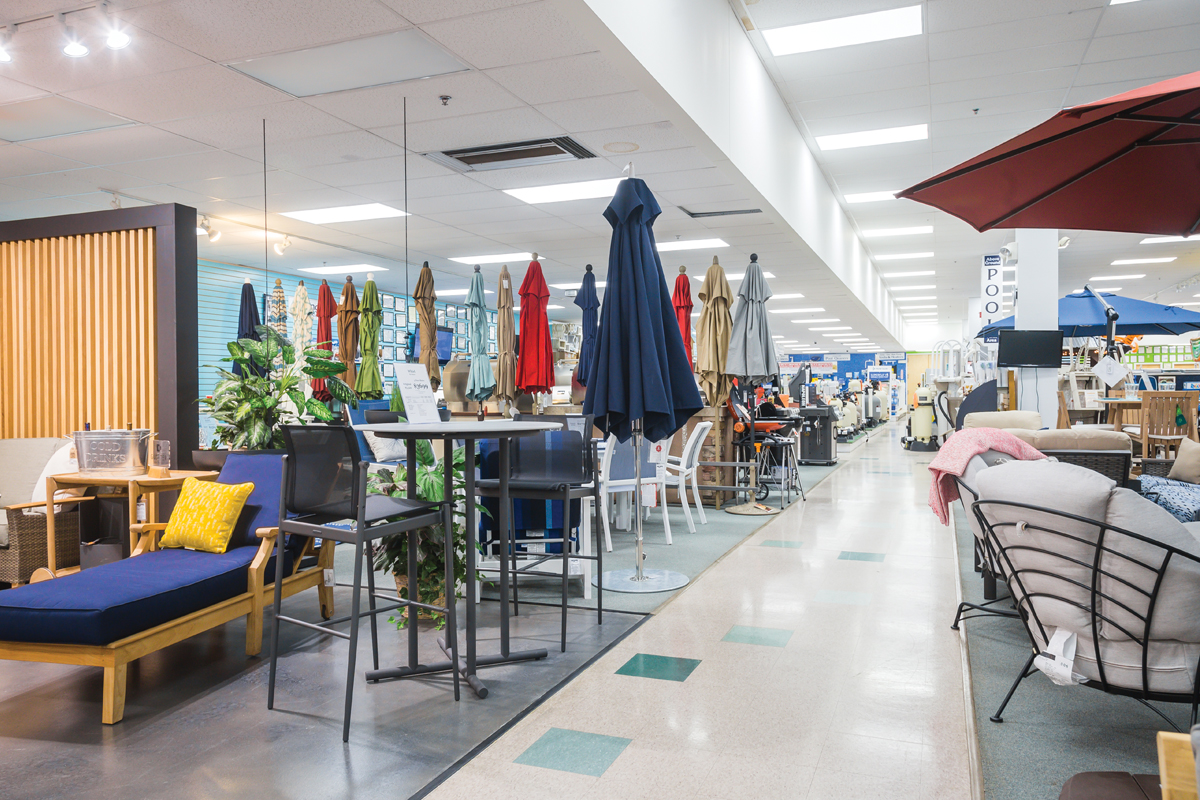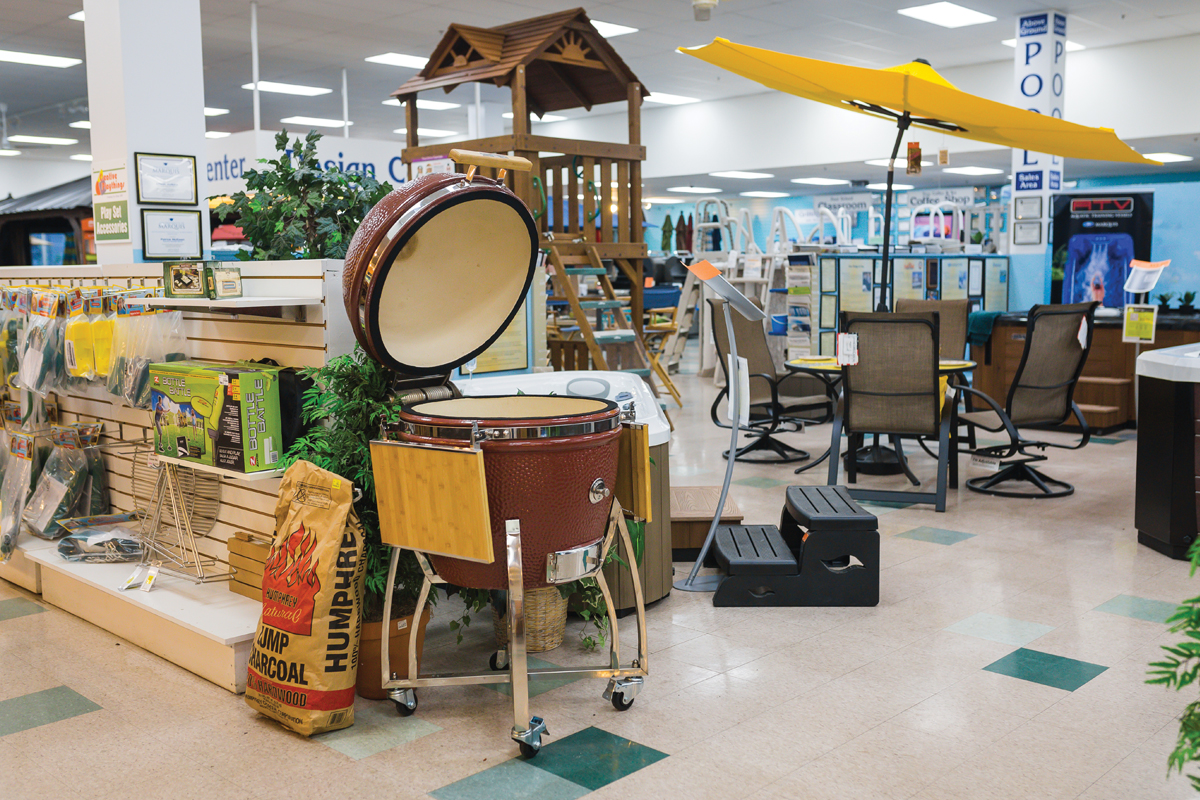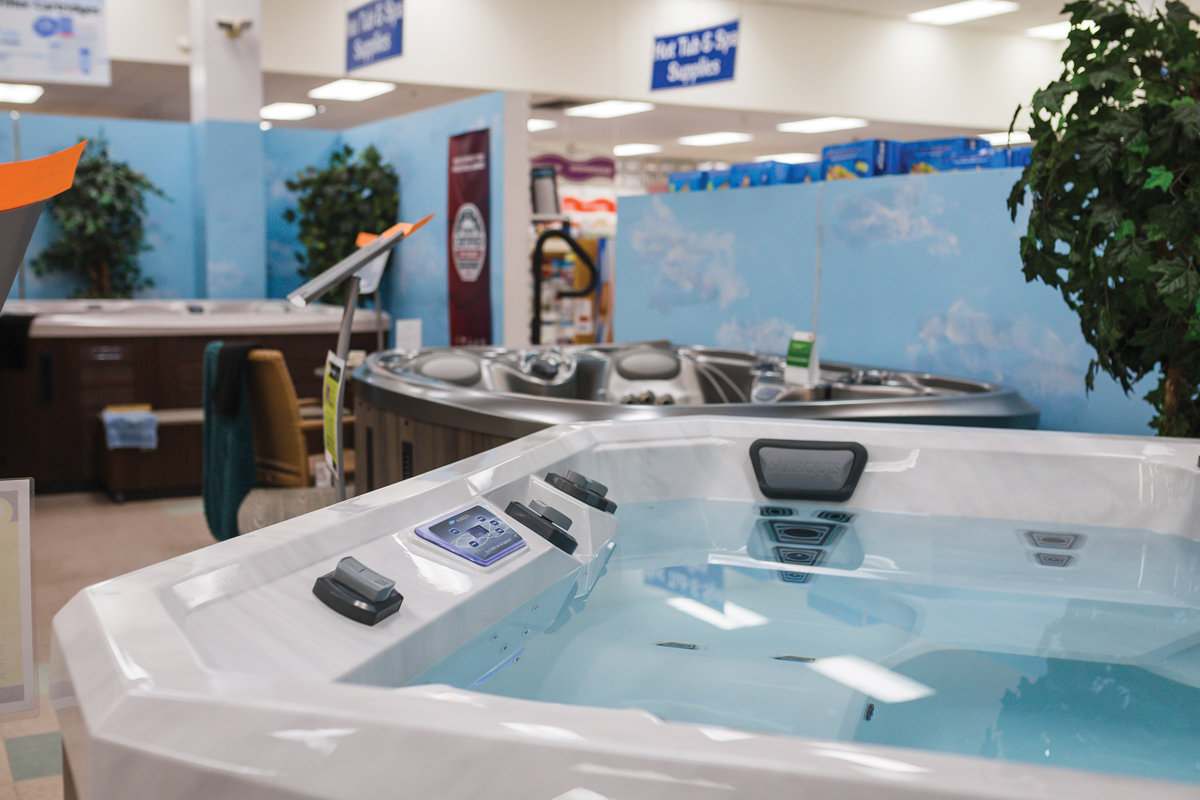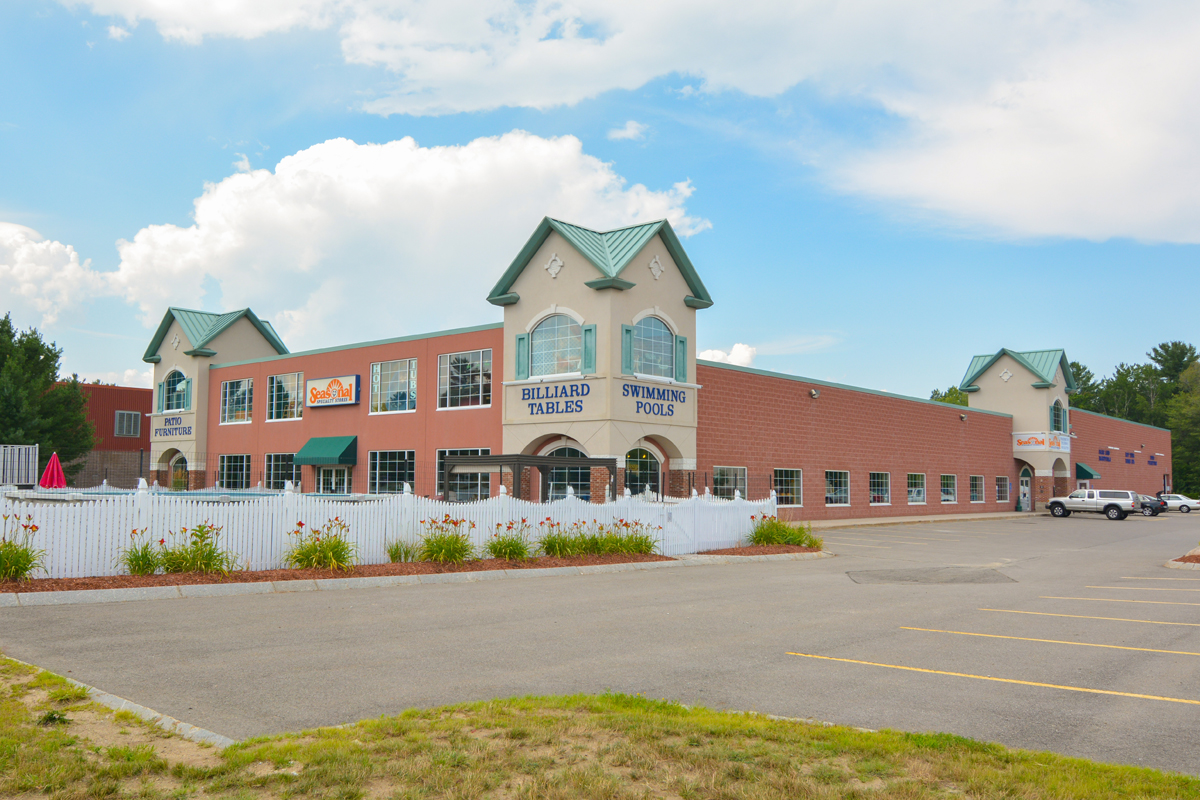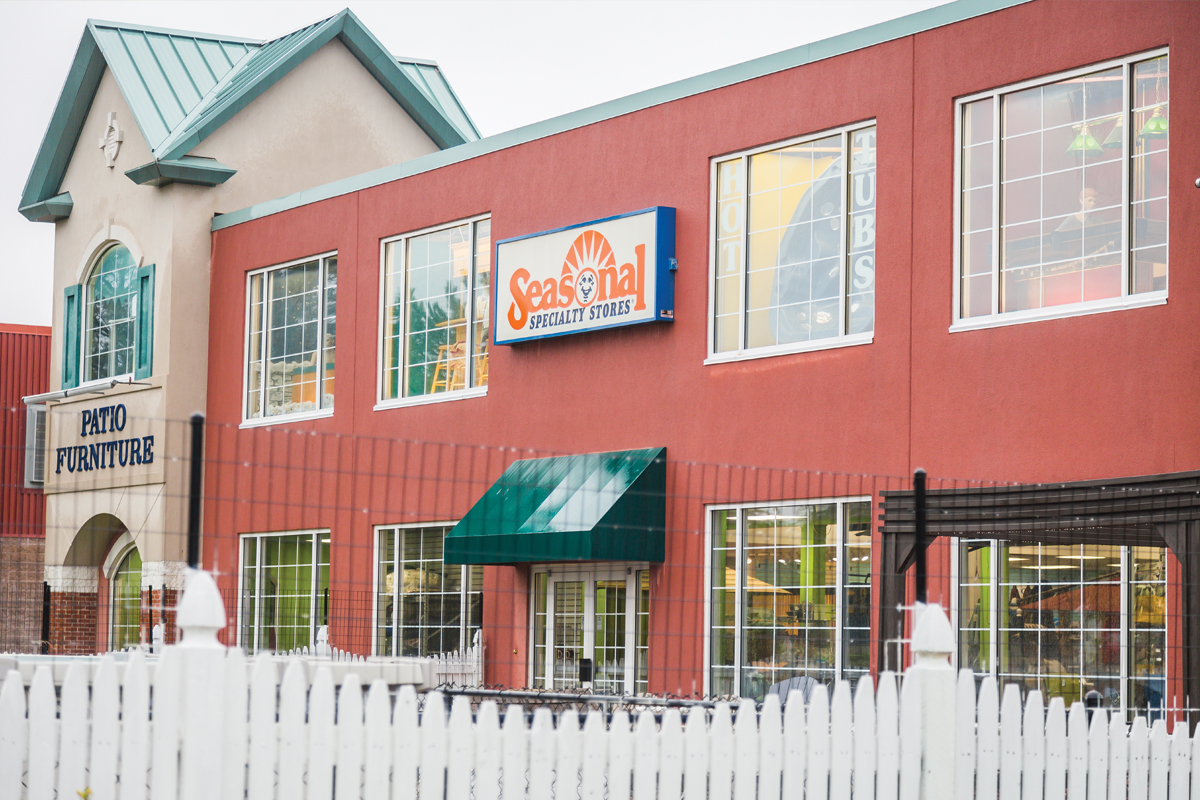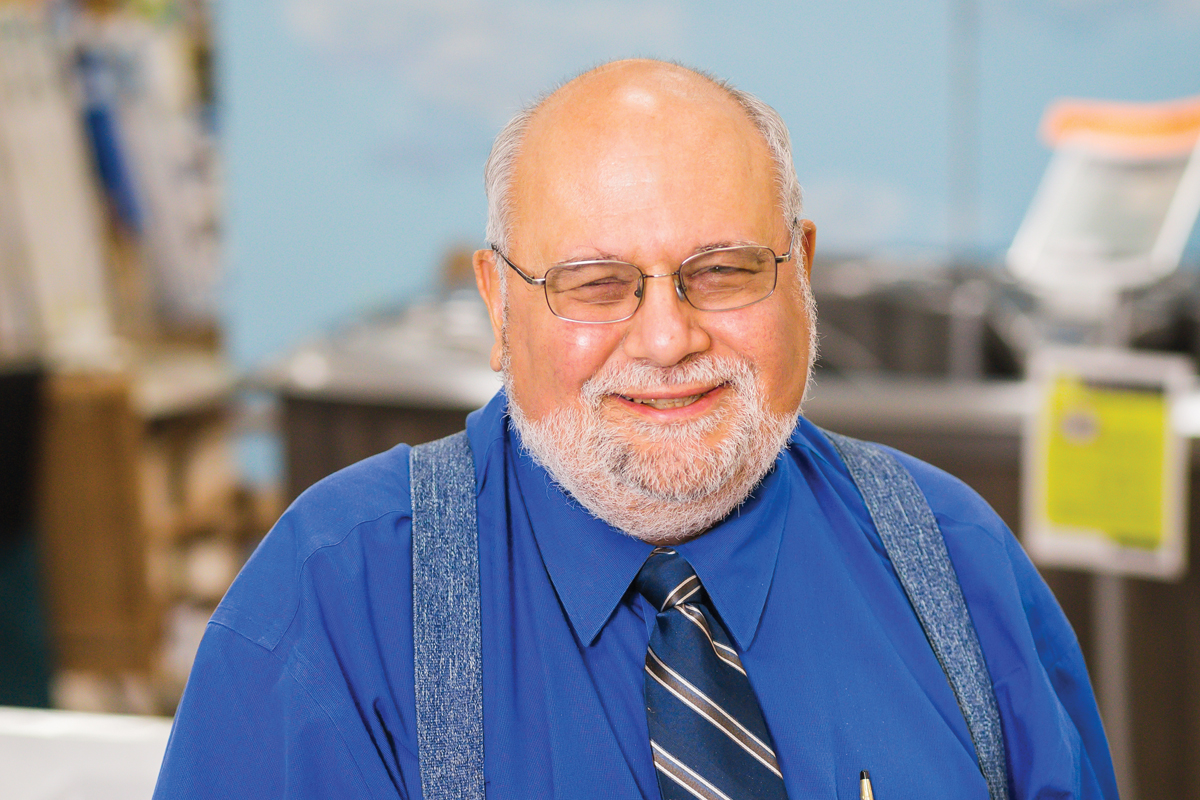 photography by Igor Klimov
photography by Igor Klimov
When Dennis DiPaolo was in college, he thought he had a great plan.
“I was taking a bunch of part-time jobs thinking I was going to learn an entire business, and then try another one,” DiPaolo says. “The second time I tried that, I went to work at a pool supply and concrete statue store. I found it so interesting, I never got out of the business.”
That was in the ’70s. By the ’80s he was vice president of marketing at Robelle, a wholesale chemical distributor based in New England that also had a chain of factory outlet stores.
“When you are in charge of a group of retail stores, you can’t get a manager to do anything,” DiPaolo says. “Every time something goes right, it’s because of the managers, and every time something goes wrong, it’s because of headquarters. I decided I wanted to go back to being in charge of everything.”
At the time, Robelle was selling off and closing its retail locations, so DiPaolo purchased one in Amherst, New Hampshire.
It was really DiPaolo’s wife, Jeanne, who pushed him.
“Jeanne felt that I would do better on my own,” DiPaolo says. “She encouraged me to buy the store and take it independent.”
It was the ’80s, and Seasonal Specialty Stores’ main product categories were pool, patio and Christmas. When DiPaolo took over, it had just gotten rid of hot tubs — and he didn’t bring them back until 2000.
DiPaolo’s experience selling mostly outdoor living products, and managing several outdoor stores with Robelle, gives him an interesting perspective on how to be successful at it and what hot tub retailers do wrong. For his store, hot tubs are in the quarter of “other” products that makes up its revenue, falling behind pool supplies and patio products.
“Frankly, [hot tubs] is the business I’m most disappointed with and that I could grow the most easily,” he says. He makes the same mistakes selling hot tubs he sees many other hot tub retailers make with backyard living products: not having enough on the floor to look like you’re in business.
“[Patio products] require a very large store and a very large warehouse — a good-size commitment,” DiPaolo says. “A lot of your smaller stores are used to only using distributors and not stocking much. Patio doesn’t ship that quickly. There are no distributors to speak of. I know plenty of people who say, ‘I can’t sell this patio furniture.’ Well, they bought three sets and put them on the floor in the corner, and decided they can’t sell because three sets didn’t sell. Well, it takes 12, 16, 20 sets. It’s like if you think you’re in the hot tub business because you have one hot tub on the floor.”
Besides the floor and warehouse space, DiPaolo also recommends a specialized buyer.
“When I use one of my style people to pick the [patio furniture] colors, they feel better,” DiPaolo says. “Does this furniture look great? Is it a style people want? Is it comfortable when I sit in it? At least a third of our patio business is special orders. Like with furniture, it’s a style business.”
When it comes to grills, DiPaolo says he sees hot tub retailers in his area making the same mistakes many pool companies do when they decide to sell hot tubs.
[Pool retailers] want to carry a rotomold because they figure they can throw two on the floor, and it’s cheap and easy, he says, but “They’re not willing to commit to eight, 10, 12, 16 or 20,” DiPaolo says. “The hot tub people around here, when they add grills, they have the grill out because it’s easy; it only takes a bit of room. If you want to carry real grills, you’d have to carry a dozen styles. That seems like a lot of work.” DiPaolo’s store carries grills and says that although it’s a “lousy” markup it’s a good value per square foot. “A big grill department is the size of four hot tubs,” he says.
When DiPaolo bought the business, it was in a strip mall, which he quickly upgraded to a 10,000-square-foot store in the next town over. When they outgrew that location, DiPaolo built a building with an 18,000-square-foot retail footprint with a 12,000-square-foot warehouse.
The store has carried many product categories over the years — Christmas, billiards, ice-fishing supplies, and even once housed an H&R Block. DiPaolo says it’s hard to manage the seasonality.
“The original concept of ‘carry Christmas and pool tables’ was for the balance,” he says. “We originally did Christmas in order to keep us from laying off help. Most people like us have gotten out of it because the amount of work it takes to set up.” His billiards business dried up, too, he says. But while he hasn’t found a winter product to replace that revenue, the last three years have been the best the business has ever had.
Keeping everyone happy
DiPaolo says he feels like his job is to keep the employees happy — with their job and with each other. In addition to keeping the full-time staff employed year-round, DiPaolo offers a college scholarship designed for the summer help, and year-round employees can also take advantage of it. “If you work for me for three summers, you get a scholarship,” he says. “We pay for your school at $1 an hour going back to the first dollar you worked.”
Employees can also nominate each other for a “One-Of-These” awards. If someone sees a fellow worker do something above-and-beyond, they can submit the action, which goes on a bulletin board that everyone can read. “I’ve had months with 60 One-Of-These awards on the bulletin board. I usually read the five finalists at the Sunday meeting, and I give a $75 restaurant gift certificate for being the best one that month. Then they all go into a draw and somebody else gets a $75 gift certificate.”
During the time of this interview, there was also a make-your-own ice cream Sunday set up in the break room for employees.

